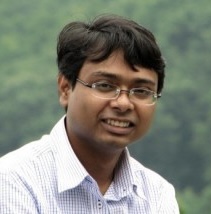Scope and Topics
Sound and vision are two of the senses we most heavily rely on in our everyday lives. Advances in computer vision have profoundly impacted our daily lives and greatly bridged the gap between human and machine intelligence. Despite being less explored, audio contains just as much rich information about the activities, events, and environments around us. Audio is vital in many applications and has numerous advantages that position it to be the most pervasive sensing modality in mobile and intelligent systems: 1) less power consuming and computational requirements; 2) greater omnidirectional coverage; 3) less impacted by physical obstructions; 4) cheaper and more portable sensors; and 5) less privacy intrusive. Audio intelligence will enable low-power, low-cost, real-time, hands-free, and more interactive communication between machines, humans, and the environment. This workshop aims to push the boundaries of machine intelligence by exploring the sensing, communication, system implementation, algorithm design, and applications of intelligent acoustic systems.
IASA welcomes contributions in all aspects of acoustic sensing, systems, and applications, including mobile and wearable sensing or communication utilizing sound, vibration, ultrasound, and infrasound, algorithms in acoustic intelligence, security and privacy utilizing acoustics, and data or deployment experiences.
Topics of interest include, but not limited to:
- Advancements in signal processing, machine learning, and AI of acoustic systems
- Communications with acoustics
- Acoustic intelligence in mobile, wearable, robotic, and aerial environments
- Design, implementation, or deployment of acoustic systems
- Applications of intelligent acoustic systems
- Preventive maintenance based on acoustics
- Novel acoustic sensors or sensing systems
- Interactions between acoustics and humans
- Acoustics in health applications
- Data or experiences with acoustic deployments
- Ultra-low-power acoustic sensing and perception
- Immersive acoustic experiences for AR/VR
- Acoustic side-channels for security and privacy
- Cross-medium networks for ocean-IoT
- Underwater backscatter communication and networks
- Acoustic federated learning and distributed intelligence
- Privacy-preserving acoustic sensing
- Multimodal systems combining acoustics with other sensing modalities
- Large language models (LLMs) for acoustic understanding and generation
- Self-supervised learning (SSL) acoustic foundation models
- Few-shot and zero-shot learning for acoustic applications
- Transformer-based architectures for acoustic processing
- Energy-efficient deployment of acoustic foundation models on resource-constrained devices
In addition to the research papers, we also invite “Challenge Papers” that present revolutionary new ideas that challenge existing assumptions prevalent among acoustic signal processing, machine learning, and the mobile systems community in general. These “challenge papers” should provide stimulating ideas that may open up exciting avenues and/or influence the direction of future intelligent acoustic research. An exhaustive evaluation of the proposed ideas is not necessary for this category; instead, insight and in-depth understanding of the issues are expected.
Submission Guideline
We invite original research papers that have not been previously published and are not currently under review for publication elsewhere. Submitted papers should be no longer than six pages for research papers and four pages for challenge papers (including references and appendices). Your submission must use a 10pt font (or larger) and be correctly formatted for printing on Letter-sized (8.5" by 11") paper. Paper text blocks must follow ACM guidelines: double-column, with each column 9.25" by 3.33", 0.33" space between columns and single-spaced. The title of challenge papers must bear a "Challenge:" prefix.
Papers are to be submitted at: https://iasa2025.hotcrp.com
All accepted papers will be published as part of the ACM proceedings.
Important Dates
- Paper Registration: August 18, 2025, 23:59 AOE
- Paper Submission: August 25, 2025, 23:59 AOE
- Notification of Acceptance: September 15, 2025, 23:59 AOE
- Camera Ready Deadline: September 29, 2025, 23:59 AOE
- Workshop Date: Nov 8, 2025
- Location: Hong Kong, China




